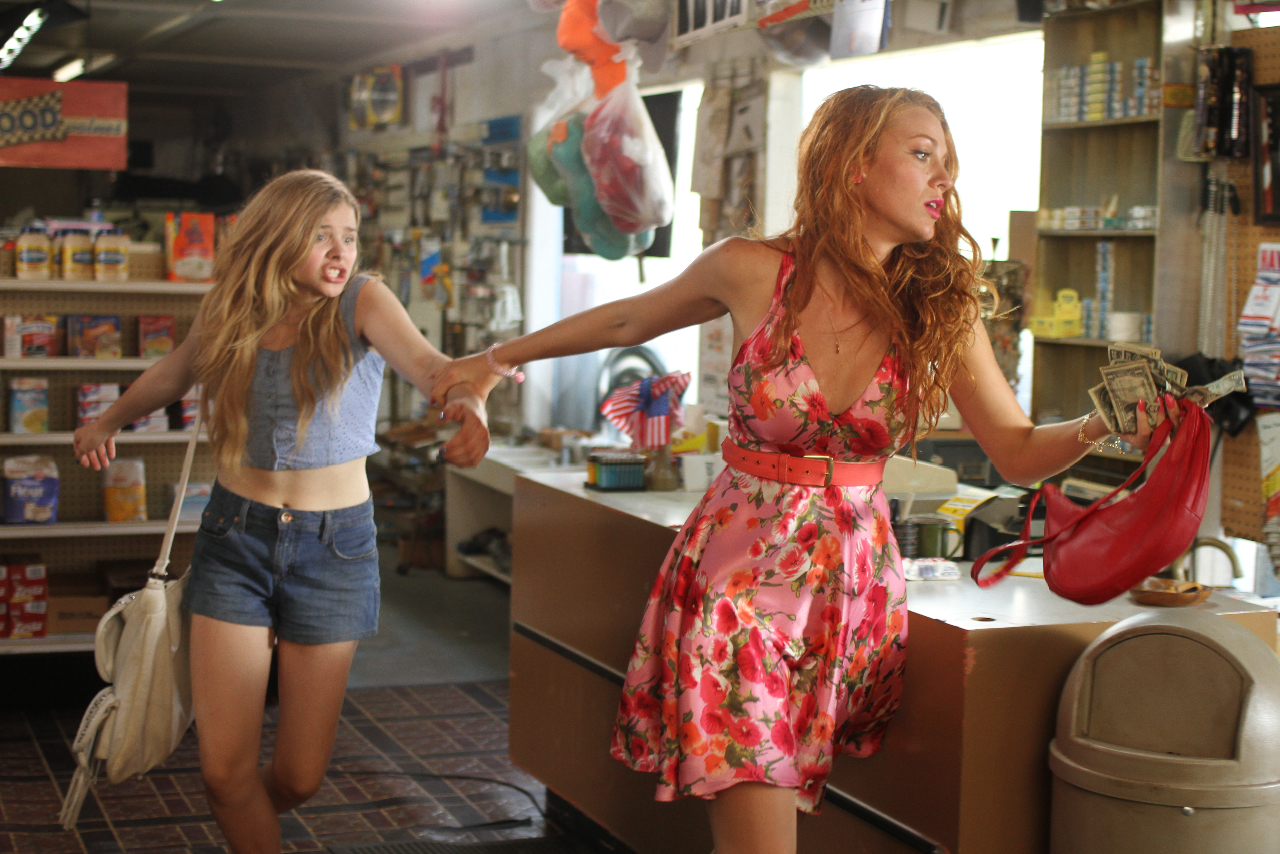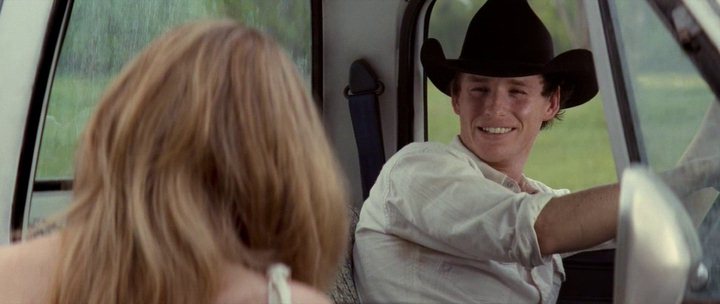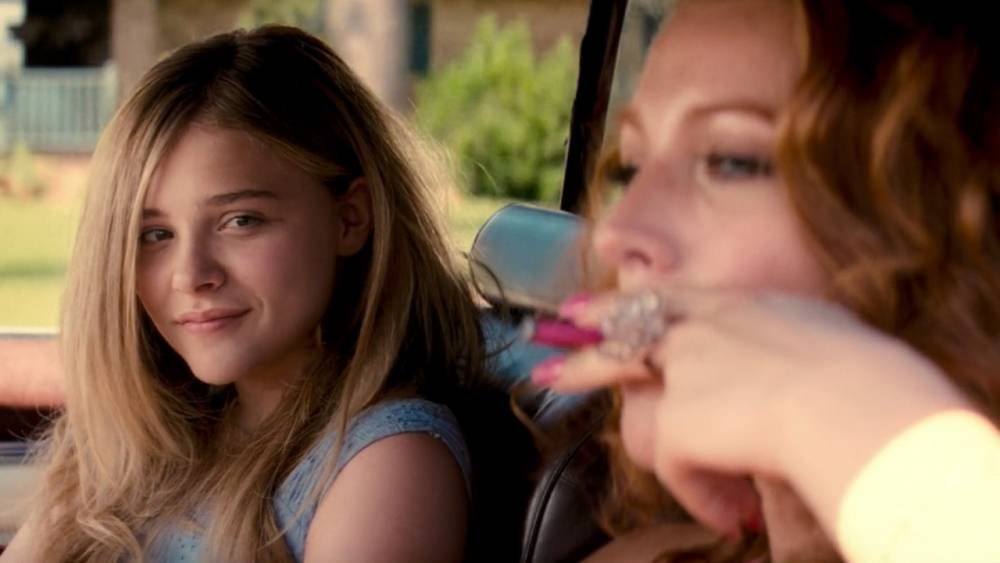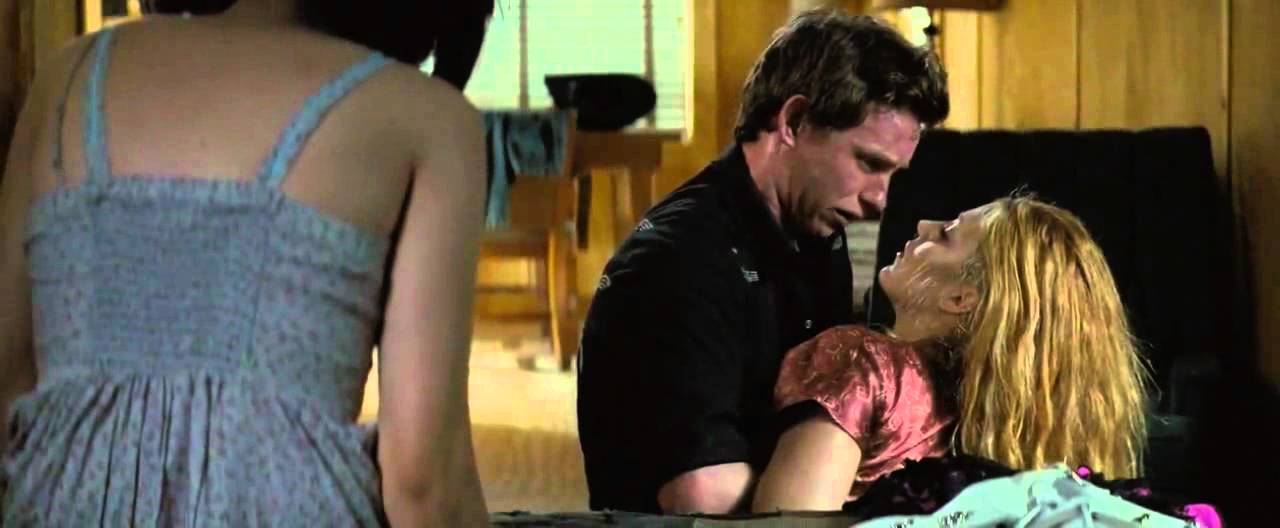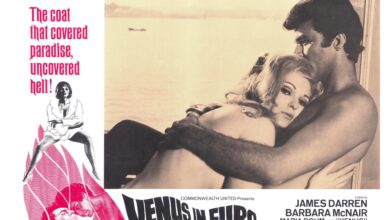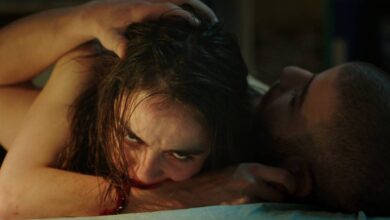Hick (2011): A Journey Through Innocence, Ruin, and Raw Self-Discovery

Directed by: Derick Martini
Starring: Chloë Grace Moretz, Blake Lively, Eddie Redmayne
Genre: Coming-of-Age / Drama
Runtime: 99 minutes
1. A Gun, a Drawing, and a Road: The Premise of Escape
Hick opens with Luli McMullen turning thirteen, a girl who knows more than she should and still far less than she thinks. Raised in a neglected corner of Nebraska, her parents—both alcohol-soaked and emotionally bankrupt—are incapable of offering her structure, safety, or love.
Instead of a childhood, Luli is handed chaos. So she packs a pistol, some lipstick, and a drawing pad and heads west toward Las Vegas—fueled by pop culture dreams and delusions of glamour. She seeks not just freedom, but an identity—one that might protect her in the adult world she’s stepping into far too soon.
But this isn’t a tale of adventure or awakening. It’s a quietly devastating descent into the underbelly of forgotten highways, where every friendly face hides an unpredictable threat, and every motel mirror reflects something you’d rather not see.
2. The Vulnerable Grit of Chloë Grace Moretz
Chloë Grace Moretz delivers a performance that’s frighteningly mature, not because Luli is wise beyond her years—but because Moretz captures that dangerous blend of teenage swagger and vulnerability. Luli is neither hero nor victim. She’s a child playing dress-up with grown-up wounds.
Moretz plays her not as precocious, but as someone pretending to be. That distinction is important. Luli mimics confidence, sexuality, and control—mimics, but never truly possesses them. Her voice wavers between sass and plea, and her posture, while upright, often betrays the tremble underneath.
In quiet scenes—like when she stares out a car window, or draws in her sketchbook—there’s a rawness that cuts deep. You don’t pity her. You want to reach into the screen and tell her to wait, to hold on, that growing up doesn’t have to be like this.
3. Wolves in Human Skin: Redmayne and Lively
As Luli drifts through the American wasteland, she meets two people who seem to orbit her fate: Eddie (Eddie Redmayne), a drifter with a stuttering voice and unstable mind, and Glenda (Blake Lively), a hardened woman clinging to the remains of her wild youth.
Eddie is terrifying not because he’s loud, but because of his quiet unpredictability. Redmayne plays him with a chilling, childlike detachment—one minute gentle, the next filled with menace. He walks a fine line between broken and dangerous. He’s the kind of man the world never helped, and now he doesn’t know how to be harmless.
Glenda, meanwhile, is like a cracked mirror reflecting what Luli could become: bitter, addicted, yet with traces of protectiveness. Blake Lively gives her a soft ache—buried under layers of mascara and cynicism. She’s not evil; she’s exhausted. And when she does care, it’s too little, too late.
These characters don’t guide Luli. They twist her. They offer no wisdom, only confusion and blurred boundaries. The horror of Hick lies in how many versions of adulthood it shows—and how none of them seem safe.
4. Dust, Silence, and the Sound of Growing Up Too Fast
Visually, Hick is soaked in stillness. Derick Martini doesn’t romanticize the American countryside; he renders it sun-bleached and empty, like a graveyard of forgotten dreams. Gas stations buzz with fluorescent malaise, and diners echo with hollow conversations.
This emptiness becomes a metaphor. Luli’s world is not just lonely—it’s abandoned. There’s no protection, no structure, no one to say no. So when bad things happen, they’re not framed as drama. They’re framed as ordinary, which makes them feel worse.
Even the film’s pace mimics trauma: slow, circular, without a clear resolution. It captures what it’s like to be a young girl wandering through the ruins of failed adults. The cinematography isn’t flashy; it lingers, letting silence and body language do the emotional heavy lifting.
5. What Stays with You: A Haunting Kind of Coming-of-Age
Hick doesn’t resolve itself with a grand revelation. There’s no breakthrough moment, no hug that makes it all okay. What Luli gains by the end of her journey is not wisdom or strength—it’s scars. And that feels tragically honest.
This isn’t the kind of coming-of-age film where you cheer. It’s one where you wince. Because it reveals a hard truth: that growing up in a broken system isn’t about learning—it’s about surviving.
When the credits roll, what lingers is not the plot, but the ache. The quiet horror of how alone Luli truly was, and how many girls like her wander through similar roads, with no one looking.
There’s something brutally intimate in how Hick confronts us with that fact. It’s not trying to entertain. It’s trying to make us uncomfortable—for a reason. And in doing so, it succeeds. Uneven at times, yes. But unflinchingly real.

